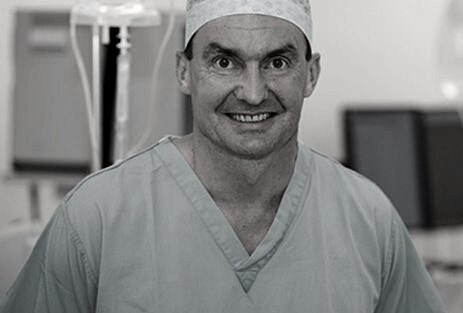Introduction
Knee pain is common, and can be caused by normal wear and tear and ageing or through physical activity and sport.
Commonly, people experiencing knee problems might experience a variety of symptoms including pain, swelling and stiffness. As we age, we may find that knee problems can flare up more frequently, take longer to settle down or that the pain may worsen. Sometimes, the pain from a knee injury may also be felt around the hip, thigh and lower leg.
At Healthshare, we provide rapid access to knee pain specialists (including orthopaedic surgeons, physiotherapists and sports medicine professionals) who will complete a full physical assessment, and help recommend a suitable treatment plan to get you on the road to recovery. Knee problems can usually be identified using an MRI scan, however surgery such as arthroscopy is sometimes required to look at the joint in more detail.

Ready to book now? Get in touch to discuss your needs and decide on the best course of treatment for you.
Ready to book now? Get in touch to discuss your needs and decide on the best course of treatment for you.
Reasons to see a specialist knee consultant
You may request, or be referred on, to see a specialist knee consultant if you suffer from regular symptoms such as:
- Ongoing pain e.g. for non-athletes this is usually after three weeks. For a sport injury, this is more than 48 hours
- Difficulty walking or completing everyday activities e.g. pain or reduced mobility due to stiffness
- Reduced range of motion
- Knee instability e.g. if it wobbles, or feels like it could give way
- Deformity of the joint e.g. swelling or one knee appearing misshapen
- Reduced sensation of feeling in the knee
- Pain that makes it difficult to fall asleep.
Common knee injuries may include:
- Fractures
- Dislocation
- Anterior cruciate ligament (ACL) or posterior cruciate ligament (PCL) injury
- Meniscal tears
- Tendon tears.
Common knee conditions that require surgery
Anterior Cruciate Ligament (ACL) injury
The ACL is a band of tissue that joins the thigh bone to the shin bone at the knee joint. The ACL helps to give your knee joint stability as well as control back and forth movement on the leg. If you tear the anterior cruciate ligament in your knee, you may need to have surgery to repair it.
ACL injuries most commonly occur during sports that involve sudden stops or changes in direction, jumping and landing such as football, rugby, skiing, and squash.
When the ACL is torn, many people find their knee feels very unstable and they have limited range of movement. This can impact sport and physical activity, but also day to day activities such as bending down.
Meniscus tear
The meniscus is a thick pad of smooth cartilage in your knee. Each knee has two pads, and these help to keep your knee stable and moving smoothly, as well as acting as a shock absorber.
Although the meniscus is tough and elastic, a meniscus tear is one of the most common injuries to the knee. It can affect knee mobility and movement until it recovers, or is surgically repaired. The two most common causes of meniscus damage are:
- The wear and tear of natural ageing, weakening the cartilage over time and leaving it more vulnerable to damage. This is more common in people over 40 (especially those over 65) and those who are clinically obese.
- A forceful rotation of the knee when playing sports such as football or netball, which is more common in younger, more active people. Often, damage to the meniscus occurs alongside other knee injury such as ACL tears or sprains.
- Popping sensation
- Swelling
- Knee pain that gets worse when you twist your knee or squat down
- Stiffness and reduced movement, including problems straightening your leg as normal
- Feeling like your knee gives way from time to time, or feel locked in place.
Over time, a meniscus tear can also lead to osteoarthritis, which is a common type of arthritis that causes joints to become painful and stiff.
Knee osteoarthritis
Osteoarthritis is a disease that can cause pain and stiffness in your joints, and often affects the knee. It usually affects those over 50, and becomes increasingly common the older you are.
Osteoarthritis causes damage to the structures inside your knee, such as cartilage, bones and membranes. Over time, this damage can stop your knee working as it should which then leads to increased pain and reduced mobility.
Risk factors for developing osteoarthritis can include:
- Ageing
- Obesity
- Working in a physically demanding job
- Regular use of the joint e.g. long-term runners
It can also develop after injury, or a series of smaller injuries over time.
- Symptoms of knee osteoarthritis often include:
- Knee pain, especially if it gets worse during physical activity
- A stiff sensation in your knee after sleep or inactivity
- Reduced mobility due to stiffness or swelling
- Creaking or grinding when you move the knee
- Feeling like your knee gives way from time to time, or feel locked in place
Common knee procedures
Meniscal repair surgery
Meniscus tear surgery may be needed if you have had a knee injury, and the menisci have become damaged or torn. For this surgery, specialist orthopaedic knee surgeons can either perform a direct repair on the meniscus or a meniscus transplant operation.
Total knee replacement surgery
Total knee replacement surgery is commonly used to resolve pain caused by degenerative knee conditions, such as arthritis. This surgery involves removing the damaged surface of your deteriorating knee and replacing it with an artificial joint.
Arthroscopic knee surgery
Knee arthroscopy, also known as keyhole surgery, is often carried out to diagnose and treat knee pain. During the procedure, the orthopaedic surgeon will use specialist equipment that makes a very small cut (also known as an incision) in the skin next to the knee joint. An arthroscope (a thin tube with a light and a camera on the end) is passed through the incision to examine the joint condition, and understand what may be causing the symptoms. The surgeon may decide to undertake some additional surgical work to repair the knee where possible, or recommend a follow up procedure if a more complicated method is required.
ACL reconstruction surgery
ACL reconstruction surgery involves repairing or reconstructing your anterior cruciate ligament (ACL). It can be reconstructed by replacing the ligament with a graft. This will stop the knee from giving way when making twisting or turning movements.









